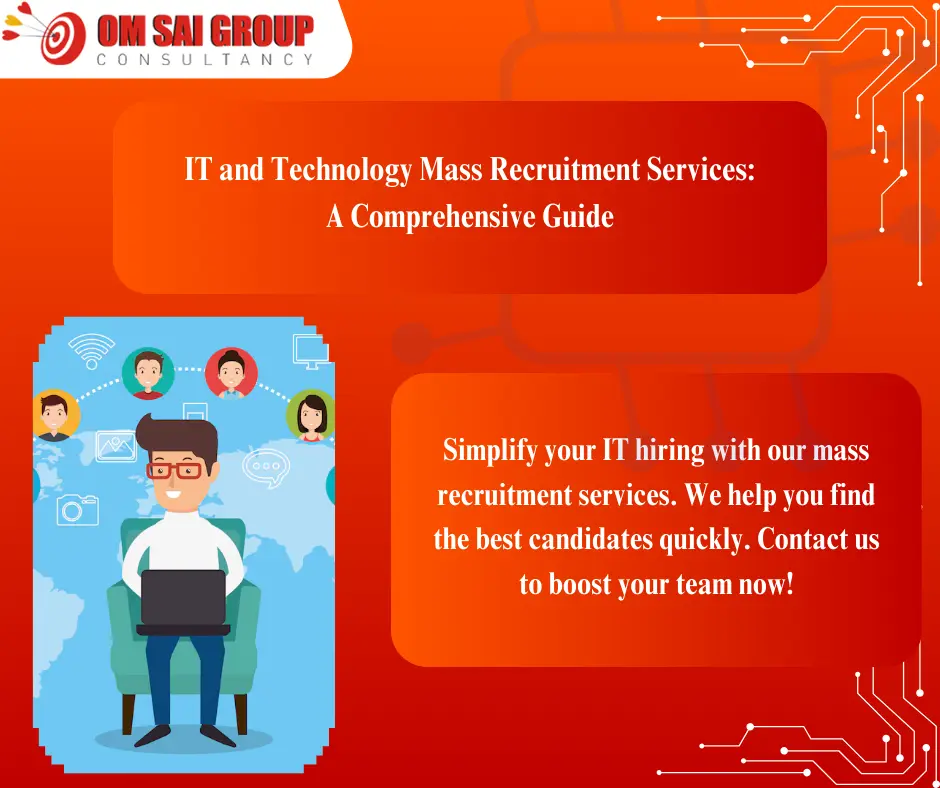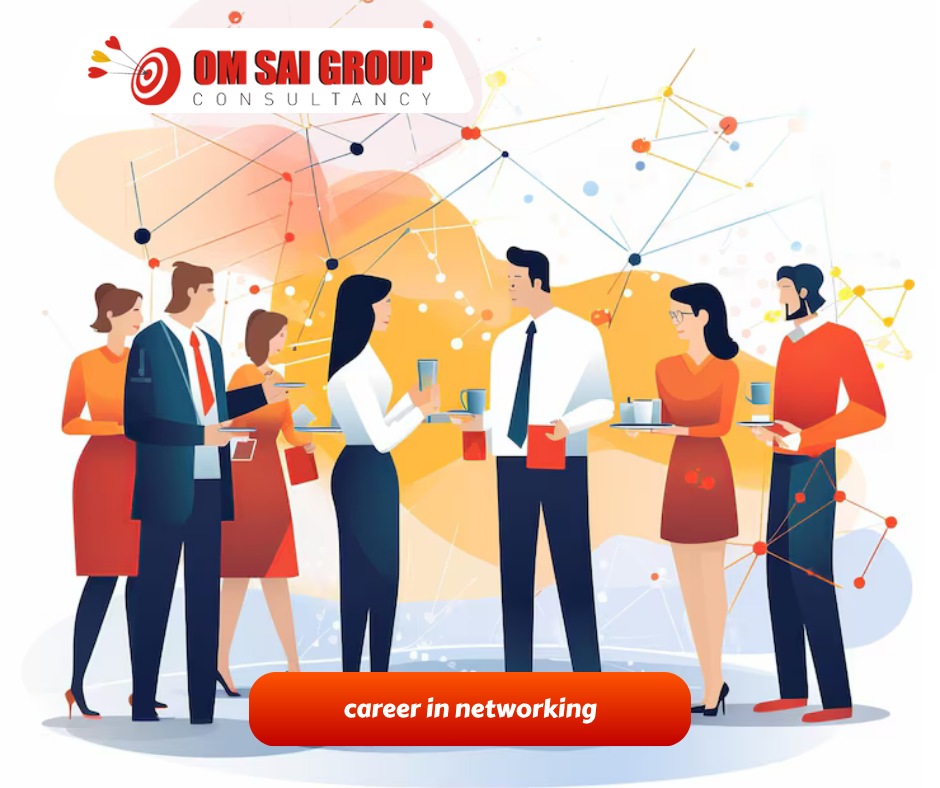IT and Technology Mass Recruitment Services: A Comprehensive Guide
In today’s dynamic business environment, scaling up your IT and technology workforce is not just a necessity but a strategic move. IT and technology mass recruitment services Whether you are a startup expanding operations or a well-established firm diving into digital transformation, mass recruitment of skilled professionals is critical. This guide delves into the realm of IT and technology mass recruitment services using the Problem-Agitation-Solution (PAS) framework to explore the challenges, consequences, and solutions tied to large-scale hiring.
The Challenge: Inefficient operations and a shortage of skilled talent
The IT and technology sectors face significant talent shortages, a concern validated by industry reports. 64% of IT leaders identified talent shortages as the top barrier to adopting new technologies. Specific areas like artificial intelligence (AI), cybersecurity, and data science are particularly hard-hit, with demand consistently outstripping supply.
Principal Difficulties:
1. High Volume and Speed Demands: Rapid scaling often requires filling hundreds of roles within tight deadlines. For instance, cloud service providers might need large development and engineering teams to handle new projects. Traditional recruitment processes often fail to meet such urgent demands.
2. Skill Gaps: Rapid technological advancements make it difficult to find candidates with the exact skills—from specific programming languages to niche certifications—that are essential for the job.
3. Budget Constraints: Large-scale recruitment can strain financial resources if not efficiently managed. The Society for Human Resource Management (SHRM) reports that the average cost per hire is $4,700, with this number escalating during bulk hiring efforts.
4. Employer Branding Risks: When organizations focus on high-volume hiring, there is a risk of creating a disorganized and impersonal process. Candidates who feel neglected may disengage or leave negative reviews on platforms like Glassdoor, tarnishing the company’s reputation.
The Agitation: What Takes Place When Hiring Is Ineffective
Ignoring these challenges can lead to significant setbacks. Consider this example from 2021:
A global fintech firm aimed to recruit 500 IT professionals in six months to support a major product launch. Without a structured recruitment strategy, the company encountered:
. Missed Targets: Only 60% of the roles were filled within the timeline, delaying critical deliverables.
. High Attrition: Of the employees hired, 22% resigned within a year due to mismatched expectations.
. Reputation Damage: Candidate feedback on poor communication and unstructured interviews resulted in a 15% decline in applications for the next quarter.
Ultimately, the company incurred a $1.2 million loss due to delayed projects and opportunity costs, alongside a dented employer brand.
Leveraging IT and technology mass recruitment services is the answer.
Mass recruitment services are designed to address these pain points, enabling businesses to scale efficiently. These services combine expertise, technology, and streamlined processes to meet high-volume hiring demands while maintaining quality and candidate satisfaction.
Important Characteristics of Mass Hiring Services:
1. Optimized Talent Acquisition Processes: By leveraging automated tools like Applicant Tracking Systems (ATS) and data-driven approaches, recruitment services simplify the hiring process. This ensures faster shortlisting, scheduling, and onboarding.
. Example: In 2022, TCS partnered with a recruitment provider to hire 1,000 software engineers. Automation reduced time-to-hire by 35% compared to their in-house methods.
2. Access to Pre-Screened Talent Pools: Recruitment agencies maintain large, pre-vetted databases of candidates categorized by skills, experience, and geography, cutting down the sourcing time significantly. . Example: A cybersecurity company filled 300 analyst roles in four months by utilizing a pre-screened talent pool, reducing sourcing time by 50%.
3. Customized Hiring Campaigns: Tailored recruitment campaigns ensure the right talent is targeted for specific roles, whether it’s entry-level developers or senior AI specialists.
4. Improved Employer Branding: Recruitment partners prioritize personalized candidate experiences through clear communication, timely updates, and structured processes, enhancing your company’s image as an employer.
. instance, during a high-volume hiring push in 2023, IBM’s partnership with a recruitment service increased candidate satisfaction rates by 40%.
5. Data-Driven Insights: Modern recruitment services utilize analytics to optimize job descriptions, identify sourcing channels, and evaluate hiring trends, improving overall efficiency.
For Why IT and tech companies need mass recruitment services
1. Scalability and Speed:
Recruitment services handle large-scale hiring efficiently, reducing time-to-hire without compromising quality.
. Stat: Companies using specialized recruitment services report hiring cycles that are 60% faster on average.
2. Economy of Cost:
While outsourcing recruitment involves upfront costs, it saves money long-term by reducing turnover, minimizing training expenses, and improving hiring accuracy.
. Stat: Deloitte reports that businesses save up to 20% on recruitment costs by outsourcing.
3. Access to Global Talent:
Recruitment providers help companies navigate international hiring by managing local compliance, cultural nuances, and logistical challenges.
4. Quality Consistency:
From sourcing to onboarding, mass recruitment services maintain consistent standards to ensure candidates meet job requirements and organizational expectations.
Qualities to Consider in a Partner for Mass Recruitment
Selecting the best source of recruitment services is essential. Here are some things to think about:
1. Industry Expertise: Look for providers with experience in IT and technology hiring to ensure they understand the nuances of these roles.
2. Technology Adoption: Providers using advanced tools like AI-driven sourcing, ATS, and predictive analytics are better equipped to deliver efficient results.
3. Customizable Solutions: Ensure the partner offers tailored strategies rather than a generic, one-size-fits-all approach. Request case studies or client references.
4. Transparency: Opt for providers with clear processes, open communication, and well-defined deliverables.
Case Study: Success in IT Mass Recruitment
Situation:
To support the introduction of a new product, a multinational software company had to acquire 2,000 IT specialists in less than a year. They collaborated with a specialist hiring firm.
Approach:
. Skill Gap Analysis: The recruitment provider identified critical roles and aligned them with available talent pools.
. Customized Campaigns: Job ads were optimized for platforms like LinkedIn and GitHub to attract qualified candidates.
. AI-Powered Screening: Automated tools shortlisted resumes, focusing on relevant skills and experience.
. Seamless Interview Coordination: The provider managed interview scheduling and follow-ups to streamline the process.
Result:
. Timely Fulfillment: All 2,000 roles were filled within the deadline.
. Retention Rate: 87% of hires remained with the company after a year.
. Cost Savings: The firm saved $3.5 million compared to their previous recruitment strategy.




